Third chapter of the “Islamophobia in Spain. National Report 2015”, published by the Islamic Culture Foundation. In this article we analyze several aspects of the way in which Islam is treated in the political arena and the repercussions it has on the Muslim community. (Click here to read the previous chapter)
First of all, when referring to politics, and with regards to the presence of radical right‑wing parties, which include racist and Islamophobic claims on their agendas, it is necessary to say that, in Spain, they have barely achieved parliamentary representation; thus, its presence, although worrisome in the communities where they have the most strength, doesn’t have an impact on the development of national or regional politics. One exception needs to be pointed out, however, and that is the case of Catalonia, where the radical right‑wing party Plataforma per Catalunya (PxC) obtained 8 city councilors in the 2015 local elections, far, nonetheless, from the 67 city councilors obtained in 2011.
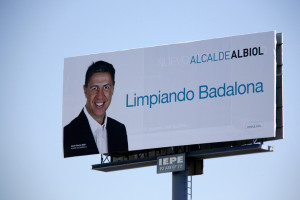 In this sense, Catalonia’s politics, as a result of the celebration of elections and of its independence trend, have experienced a polarizing effect, with a worrying radicalization of right‑wing parties, who try to neutralize each other by turning to xenophobic measures. Such is the example of the Partido Popular (PP), which, during the political campaign, presented slogans such as: “Do not let the Raval [one of Barcelona’s neighborhoods, which gathers many of the cities’ immigration] become an Islamic ghetto” in Barcelona, “stop the proliferation of call shops, dollar stores and kebab restaurants” in L’Hospitalet, “no to the great mosque of Cornellà”, and the most stunning, “cleaning Badalona” [from immigrants and insecurity] in the city of Badalona. In the latter case, Xavier García Albiol, ex‑major of Badalona, was then named the PP’s candidate for Catalonia’s regional government, whose elections took place on September 2015, in a clear message to the most conservative electorate.
In this sense, Catalonia’s politics, as a result of the celebration of elections and of its independence trend, have experienced a polarizing effect, with a worrying radicalization of right‑wing parties, who try to neutralize each other by turning to xenophobic measures. Such is the example of the Partido Popular (PP), which, during the political campaign, presented slogans such as: “Do not let the Raval [one of Barcelona’s neighborhoods, which gathers many of the cities’ immigration] become an Islamic ghetto” in Barcelona, “stop the proliferation of call shops, dollar stores and kebab restaurants” in L’Hospitalet, “no to the great mosque of Cornellà”, and the most stunning, “cleaning Badalona” [from immigrants and insecurity] in the city of Badalona. In the latter case, Xavier García Albiol, ex‑major of Badalona, was then named the PP’s candidate for Catalonia’s regional government, whose elections took place on September 2015, in a clear message to the most conservative electorate.
The problem when regarding the elections, as pointed out by Albert Mora, professor of sociology at the University of Valencia, is that “local governments tend to support those they see as potential voters, and the majority of Muslims [due to the Spanish legislation] don’t have the right to vote” (Llopis: 2015).
Sadly, the rejection against the presence of Islam in public spaces is very common, and can be easily perceived when regarding topics such as mosques or Muslim cemeteries.
As the Spanish Union for Islamic Communities (UCIDE by the Spanish acronym) states, local governments usually set many obstacles to the obtaining of licenses to build mosques and are even more reluctant to grant smallholdings for worshipping activities (Islamophobia Special Report 2014, UCIDE). Professor Alberto Mora, when regarding the situation of mosques in Catalonia – although this can be extended to the whole of Spain – agrees that there is a tendency towards excluding mosques from the city center and placing them in the outskirts of town (Llopis: 2015). This rejection has found many support both among political parties and the population.
 A special case that needs to be pointed out here is the controversy surrounding the mosque/cathedral of Cordoba (one of the most important Spanish Islamic monuments, which dates back to the al‑Andalus historical period). This controversy began in 2006 with the registration of said mosque by the Church as its property, alleging its ownership since 1236. The consequence has been an increase in the presence of catholic symbols, as reported by the civil Platform Mosque‑Cathedral of Cordoba. This topic has occupied a prominent place during the regional elections in Andalusia (March 22nd, 2015), dividing conservative and left‑wing parties on the matter.
A special case that needs to be pointed out here is the controversy surrounding the mosque/cathedral of Cordoba (one of the most important Spanish Islamic monuments, which dates back to the al‑Andalus historical period). This controversy began in 2006 with the registration of said mosque by the Church as its property, alleging its ownership since 1236. The consequence has been an increase in the presence of catholic symbols, as reported by the civil Platform Mosque‑Cathedral of Cordoba. This topic has occupied a prominent place during the regional elections in Andalusia (March 22nd, 2015), dividing conservative and left‑wing parties on the matter.
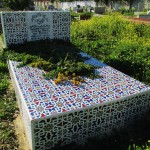 As for cemeteries, there are currently 24 cemeteries in Spain, according to the government’s Observatory of Religious Pluralism in Spain. These cemeteries represent a complex reality and its state varies from place to place, depending on their Historical context, legal frame and the interest and relations between the local government and the Muslim communities. It is, nevertheless, a fairly recent question, as, until now, it was more common to repatriate the body (Tarrés y Moreras, 2013: 314).
As for cemeteries, there are currently 24 cemeteries in Spain, according to the government’s Observatory of Religious Pluralism in Spain. These cemeteries represent a complex reality and its state varies from place to place, depending on their Historical context, legal frame and the interest and relations between the local government and the Muslim communities. It is, nevertheless, a fairly recent question, as, until now, it was more common to repatriate the body (Tarrés y Moreras, 2013: 314).
The number of Muslim cemeteries, however, doesn’t cover the needs of all the Muslims currently living in the country.
Furthermore, each cemetery presents a set of different characteristics corresponding to the different legislations applied to each autonomous community, thus its analysis would require a separate, more in depth and detailed treatment.
Bibliography
Enric Llopis, “Islamofobia: odio y rechazo a la mezcla cultural”, Rebelión, June 25, 2015, accessed December 28, 2015, http://www.rebelion.org/noticia.php?id=200375.
Observatorio Andalusí, “Estudio demográfico de la población musulmana. Explotación estadística del censo de ciudadanos musulmanes en España referido a fecha 31/12/2014”, UCIDE (2015), accessed December 10, 2015: http://observatorio.hispanomuslim.es/estademograf.pdf.
Observatorio Andalusí, “Informe especial 2014”, UCIDE (2015), accessed December 10, 2015: http://observatorio.hispanomuslim.es/isj14.pdf.
Sol Tarrés and Jordi Moreras, “Topografía de la otra muerte. Los cementerios musulmanes en España (siglo XX‑XXI)”, in Religio in labyrintho, ed. José J. Caerols, (Escola y Mayo, Madrid, 2013): 309-321.

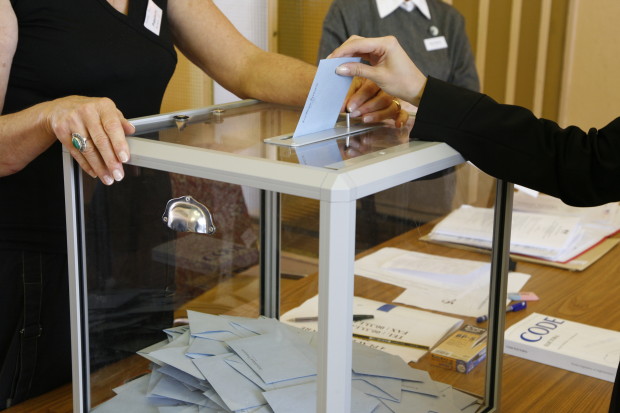

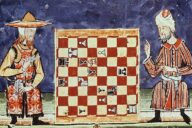
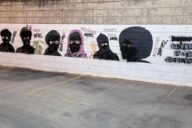










No Comments